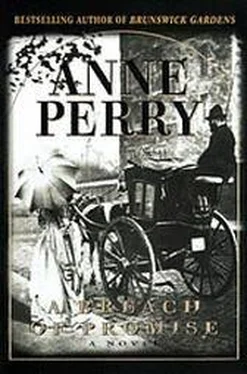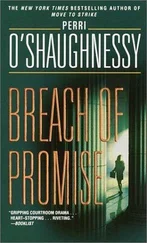Sacheverall sent Rathbone a very clear and tersely worded message that his client would not settle, and Thursday morning saw them back in court, Sacheverall standing in the open space before the high witness-box and facing first the judge, then the jury. He affected to ignore the public benches, now far more crowded again.
"I call Major Albert Hillman."
Major Hillman duly appeared, walking with a decided limp. He stared straight ahead of him, refusing to look at Rathbone or Melville where they sat, or at Sacheverall himself standing feet a little apart, back straight, like a circus ringmaster with his arms a trifle lifted. Major Hillman climbed the steps with difficulty and took the oath.
"I'm sorry to call you on this distressing matter, sir," Sacheverall apologized. “I hope your injury does not pain you too much?"
Rathbone sighed. Obviously it was going to prove to be a war wound, nobly obtained, which was why Sacheverall had drawn attention to it It was all predictable, but nonetheless effective for that.
"My duty, sir," the major replied stiffly. His distaste was plain in his face and in the downward dropping of his voice.
"Of course." Sacheverall nodded. "I shall be as brief as possible. I would not do this at all… had Mr. Melville been prepared to concede the case"-he glanced at Rathbone briefly, and away again-"and admit his fault without necessitating this unpleasant disclosure."
The judge leaned forward. "You have made sufficient apology, Mr. Sacheverall. Please proceed to your evidence."
"My lord." Sacheverall bowed.
McKeever's wide blue eyes did not seem to change at all, and yet even from where Rathbone was sitting, he could see a coldness in the judge. This should not have been a criminal matter, not even a legal one. A domestic sadness, a misunderstanding of emotions, had escalated into something which was now going to rain lives and perhaps deprive the world of one of its most brilliant and creative talents. One young woman had had her marriagehopes blighted, and no doubt she had suffered a deep and extremely powerful sense of rejection. But she was young, extremely handsome, wealthy and of a charming disposition. She would recover, as everyone does. She could simply have said that they quarreled and she had broken the betrothal. It would have raised a few eyebrows. In a month it would have become uninteresting. In a year it would have been forgotten.
This was ridiculous. Without thinking, Rathbone was on his feet.
"My lord! Before we proceed to drag two men's private lives before the public and suggest matters which cannot be proved, and should not be our concern, over the-"
Sacheverall had swung around, staring with exaggerated amazement at Rathbone.
"My lord! Is Sir Oliver saying that acts of sexual perversion and depravity are not of public concern simply because they do not happen in the middle of the street?" He flung out his arm dramatically. "Is a crime not a crime because it occurs behind closed doors? Is that his view of morality? I hope he cannot mean what he says."
Rathbone was furious. He could feel the heat burn up his face.
"Mr. Sacheverall knows I suggest nothing of the sort!" he snapped. "I ask that we not descend into the realms of prurient unprovable speculation into men's personal lives in an effort to justify acts of misunderstanding, carelessness or at worst irresponsibility. This cannot help anyone! All parties will be hurt, perhaps quite wrongly. They will learn to hate, where before there was merely sadness. They-"
"In other words, my lord," Sacheverall said jeeringly, glancing at the gallery and back at McKeever, "Sir Oliver would like my client to forgive his client and simply abandon the case, with Miss Lambert's reputation still in question and her feelings ravaged as if all that were of no importance whatever. I fear Sir Oliver betrays all too scant a regard for the purity, the sensibilities, and the true and precious value of women! In deference to his dislike for scandalous suppositions which cannot be proved, I will make no suggestions as to why."
Rathbone took a step forward. "I regard Miss Lambert's reputation as of great importance," he said gratingly, almost between his teeth. "The difference between us is that I regard Mr. Melville's reputation also… and Mr. Wolff's. He is no party to this case, and yet he stands to lose a great deal, without proof of guilt, having harmed no one."
"That remains to be seen," Sacheverall retorted. "And as to whether such acts are wrong-or not-that will depend upon another court. But I know what the public thinks!" He all but laughed as he said it, again inclining his head toward the gallery as if he spoke for them and with their approval.
McKeever sighed. He looked at Sacheverall with dislike.
"No doubt you do," he said quietly. "But this is a court of law, Mr. Sacheverall, not a place of public speculation and gossip." He looked at Rathbone. "I regret, Sir Oliver, but passionate as your plea is, it is not an argument in law. If Mr. Sacheverall's client wishes to pursue this line of testimony, I am obliged to allow it."
Rathbone swiveled around to look where Barton Lambert was sitting a little behind Sacheverall, his wife beside him. Her pretty face with its unusual brow was set in extraordinary determination. He had not realized earlier, when she was full of charm and elegance, what power there was in her. He felt certain she was the driving force behind this suit. It was she who understood precisely what damage could be done her daughter if the word was whispered around that a young man who had been in love with her had at the last moment broken his betrothal. Zillah was lovely, wealthy, of perfectly adequate social standing. Whatever fault she had was not a visible one, therefore it could only be invisible, leaving the imagination to rise-or sink-to any level. Barton Lambert might have some pity for Melville. Delphine had none.
Rathbone returned to his seat and awaited the worst.
It came. Sacheverall began to question the major as to his residence, which was the same gracious building as Isaac Wolff, and then took him step by reluctant, unpleasant step through his observations of Killian Melville's visits, the time of day or evening, as far as he could remember them, what he was wearing, his general air and demeanor. He obliged the major to describe Wolff's greeting Melville at the door, their evident pleasure in seeing each other. It was all done with some subtlety. There was nothing whatever to which Rathbone could object. He caught McKeever's eye a number of times, and saw his dislike of the pattern the questioning was following, but an equal resolve to abide by the law.
An hour later, when Sacheverall was finished and turned with a smile of invitation to Rathbone, he had established a regular pattern of visits between the two men and that they frequently lasted for several hours. He could not and would not guess as to what happened within Wolff's rooms once the outer door was closed, but the pinkness of his cheeks and his evident embarrassment and rising anger made his thoughts transparent.
Rathbone rose with his mind in turmoil. He had seldom felt so inadequate to a case or so angry with his adversary. He had often fought hard, and lost more than he wished, but to a better case, and to a man he respected. Indeed, Ebenezer Goode, a man he had often faced, was also a personal friend.
He loathed Wystan Sacheverall, and it was more than just the fact he was winning easily. There was a prurience in the man which repelled him.
"Major Hillman," Rathbone began courteously, walking forward towards the witness stand, "I am sure you would rather not be here on this matter, and I should not press you were there not absolute necessity."
"Thank you, sir," the major said stiffly. He did not know what to make of Rathbone, and it was clear in the expression in his rather plain face.
Читать дальше











